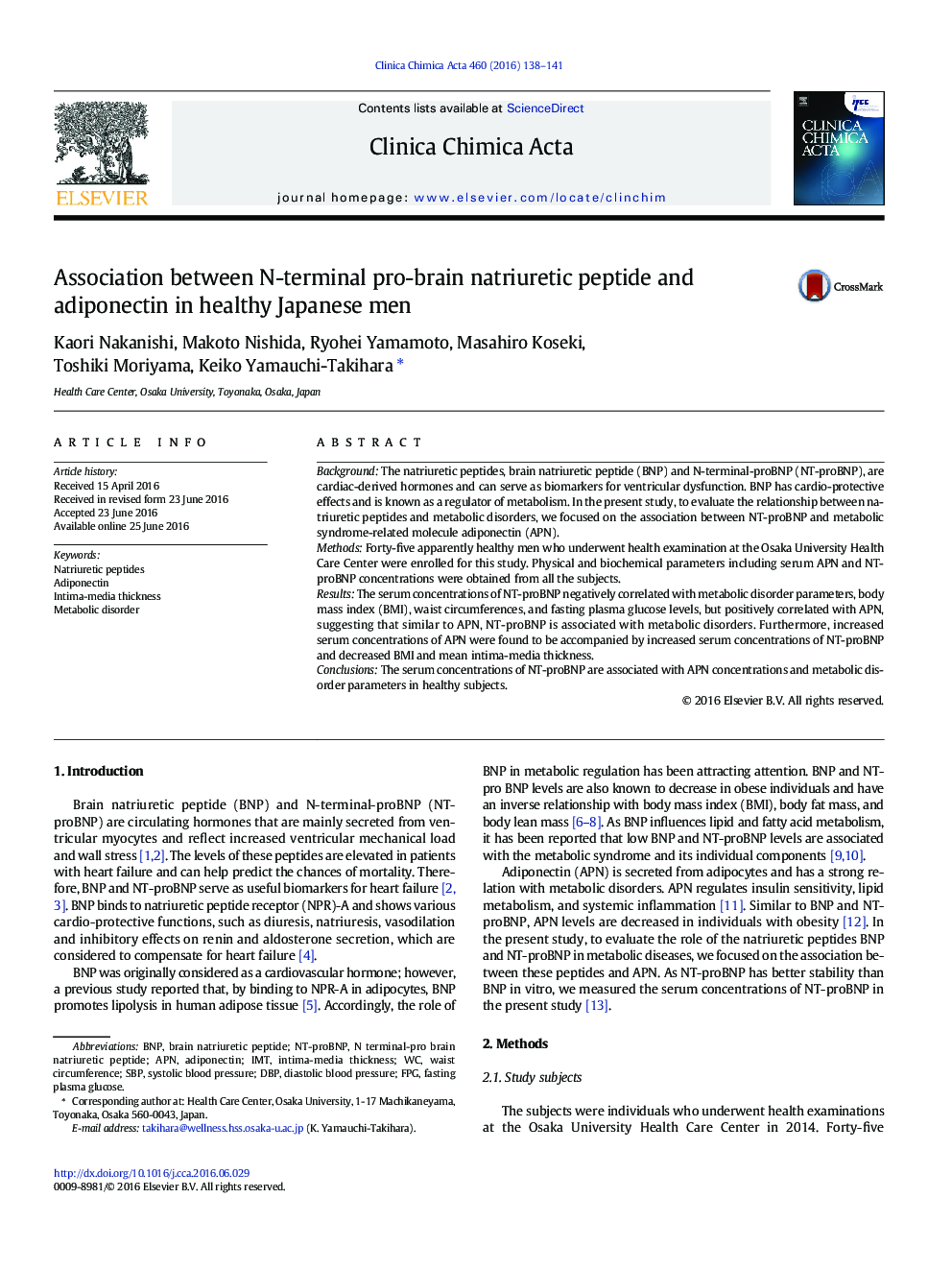| Article ID | Journal | Published Year | Pages | File Type |
|---|---|---|---|---|
| 1965040 | Clinica Chimica Acta | 2016 | 4 Pages |
•Evaluates the relationship between natriuretic peptide and metabolic disorders by focusing on the association between NT-proBNP and APN.•Serum concentrations of NT-proBNP positively correlated with APN and negatively correlated with metabolic disorder parameters.•NT-proBNP might be associated with metabolic disorder parameters thorough the increased serum concentrations of APN.
BackgroundThe natriuretic peptides, brain natriuretic peptide (BNP) and N-terminal-proBNP (NT-proBNP), are cardiac-derived hormones and can serve as biomarkers for ventricular dysfunction. BNP has cardio-protective effects and is known as a regulator of metabolism. In the present study, to evaluate the relationship between natriuretic peptides and metabolic disorders, we focused on the association between NT-proBNP and metabolic syndrome-related molecule adiponectin (APN).MethodsForty-five apparently healthy men who underwent health examination at the Osaka University Health Care Center were enrolled for this study. Physical and biochemical parameters including serum APN and NT-proBNP concentrations were obtained from all the subjects.ResultsThe serum concentrations of NT-proBNP negatively correlated with metabolic disorder parameters, body mass index (BMI), waist circumferences, and fasting plasma glucose levels, but positively correlated with APN, suggesting that similar to APN, NT-proBNP is associated with metabolic disorders. Furthermore, increased serum concentrations of APN were found to be accompanied by increased serum concentrations of NT-proBNP and decreased BMI and mean intima-media thickness.ConclusionsThe serum concentrations of NT-proBNP are associated with APN concentrations and metabolic disorder parameters in healthy subjects.
